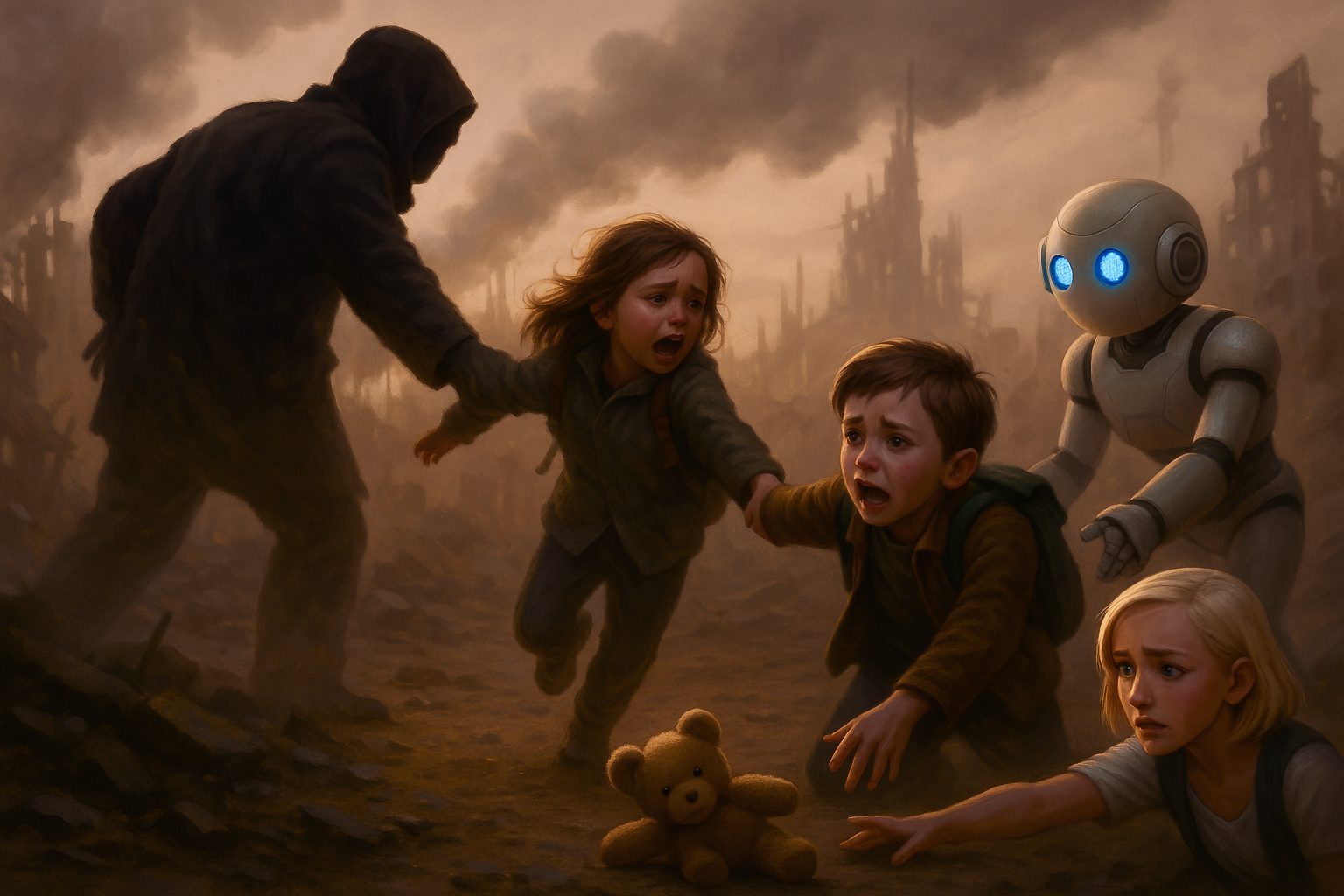Parental Alienation Awareness - References
References
- Ref 1. Harman, J. J., Leder-Elder, S., & Biringen, Z. (2016). Prevalence of parental alienation drawn from a representative poll. Children and Youth Services Review, 66, 62-66 a^, b^, c^, d^, e^, f^, g^, h^, i^, j^, k^, l^, m^, n^, o^, p^, q^, r^, s^, t^
- Ref 2. Harman, J. J., Leder-Elder, S., & Biringen, Z. (2019). Prevalence of adults who are the targets of parental alienating behaviors and their impact. Children and Youth Services Review, 106, 104471 a^, b^, c^, d^, e^, f^, g^, h^, i^, j^, k^, l^
- Ref 3. López, W., Iglesias, A., & García, M. (2014). (Study on gender differences in alienating behaviors) - as cited in Harman et al. 2019 a^, b^, c^, d^, e^, f^, g^
- Ref 4. Hine, B. et al. (2025). Prevalence and impact of parental alienating behaviours (UK survey findings summarized by Stewarts Law) a^, b^, c^, d^, e^, f^
- Ref 5. Bernet, W. (2010). Parental Alienation, DSM-V, and ICD-11. (Estimate that ~1% of U.S. children are alienated, ~740,000) a^, b^, c^, d^
- Ref 6. Blotcky, A. D., & Bernet, W. (2022). A Silent Epidemic: Parental Alienation in a Child is on Par With Physical and Sexual Abuse. Psychiatric Times a^, b^, c^, d^, e^, f^, g^, h^, i^
- Ref 7. Is Parental Alienation Costing the UK £20 billion a year? “Children of separated families have a higher probability of:” a^, b^, c^, d^, e^, f^, g^, h^, i^, j^, k^, l^, m^
- Ref 8. The Impact of Parental Alienating Behaviours on the Mental Health of Adults Alienated in Childhood - PMC “interviews on their experience and its impact. Four themes were identified: mental health difficulties, including anxiety disorders and trauma reactions, emotional pain, addiction and substance use, and coping and resilience. Intergenerational transmission of parental alienation was found. Confusion in understanding their experience of alienation, the mental health sequelae, and elevated levels of suicidal ideation were found. This study demonstrated the insidious nature of parental alienation and parental alienating behaviours and provided further evidence of these behaviours as a form of emotional abuse.” a^, b^, c^, d^, e^, f^, g^, h^, i^, j^, k^
- Ref 9. Baker, A. J. L. (2005). The Long-Term Effects of Parental Alienation on Adult Children: A Qualitative Research Study. American Journal of Family Therapy, 33(4), 289-302 a^, b^, c^, d^
- Ref 10. The Impact of Parental Alienating Behaviours on the Mental Health of Adults Alienated in Childhood - PMC “This study qualitatively investigated the mental health of adults exposed to parental alienating behaviours in childhood. Research suggests that exposure to parental alienating behaviours in childhood can have a profound impact on the mental health of those children later in life, including experiencing anxiety disorders and trauma reactions. An international sample of 20 adults exposed to parental alienating behaviours in childhood participated in semi-structured interviews on their experience and its impact. Four themes were identified: mental health difficulties, including anxiety disorders and trauma reactions, emotional pain, addiction and substance use, and coping and resilience. Intergenerational transmission of parental alienation was found. Confusion in” a^
- Ref 11. Prevalence of adults who are the targets of parental alienating behaviors and their impact “evidenced significantly higher levels of trauma and depression symptoms than non-targeted parents or individuals without children. Specifically, more severe alienation was linked to more reported trauma symptoms. Similarly, the more parents perceived alienating behaviors” a^, b^, c^, d^, e^, f^, g^, h^, i^, j^, k^
- Ref 12. U.S. Divorce Rate: 51+ Essential Statistics [2024 Update] “The U.S. divorce rate has decreased from 3.6 per 1,000 people in 2010 to 2.4 per 1,000 in 2022. Common statistics claiming that half of all …” a^, b^, c^
- Ref 13. How High-Conflict Divorcing Couples Can Influence Children | Psychology Today “1. Family of Origin. As mentioned, children who were raised by high-conflict parents, especially those who witnessed their parents’ volatile divorce process, are at risk of replicating this turmoil in their marriages. These children were raised in a war zone and battle is what they know. 2. Mate Choice. Individuals raised by high-conflict parents may unconsciously choose a partner like their mother or father. Either way, they get a skilled fighter to help them replicate their parent’s relationship style so that neither partner will need to subject themselves to unfamiliar change. If both partners are from divorced parents, there is a greater chance their relationship will end in a high-conflict separation.” a^, b^, c^, d^
- Ref 14. Parental Alienation and Its Use in Family Court - ProPublica “For example, in an ongoing case in Utah, siblings Ty and Brynlee Larson accused their father of sexually abusing them. The father’s attorney argued that the children’s mother was brainwashing them to believe their father had abused them. The abuse had been substantiated by state authorities in 2018. As a result, a court official restricted the father’s visits. Earlier this year, a judge agreed that the mother was alienating the minors and authorized police to place them into the custody of their father. In his order, the judge did not mention the previous findings of abuse against the father. The siblings resisted, barricading themselves in a bedroom in their mother’s home where they used TikTok to call attention to the judge’s orders.” a^, b^, c^, d^, e^, f^, g^, h^, i^, j^, k^, l^
- Ref 15. New research highlights prevalence and impact of parental alienating behaviours - Stewarts “Following this case, the Family Justice Council (FJC) published guidance in December 2024 on responding to a child’s unexplained reluctance, resistance or refusal to spend time with a parent and allegations of alienating behaviour. The guidance draws together best practices and the law as it currently stands. This” a^
Navigation
| ← Part 5: Systemic and Societal Impact | Introduction → |

